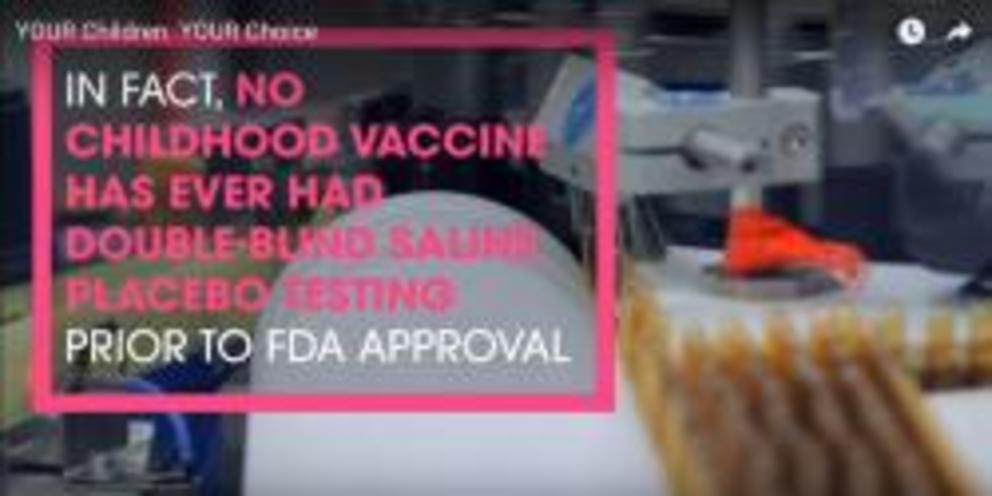20 problems with vaccine science as exemptions are ripped from parents
Note: Parents are losing their right to say "no" to even partial vaccination of their children. Exemption laws are being ripped apart and thrown away from coast to coast. Most recently in Connecticut. Politicians' knowledge of vaccine science, safety, testing, efficacy and side effects is spoon fed to them by the loving hand of the lobbyists hired by the pharmaceutical companies who make billions off the CDC mandated schedule. Below are 20 facts from an MD who is not held captive by the religion of vaccination. Dowload the list in .pdf form here
TWENTY PROBLEMS WITH VACCINE SCIENCE
Alvin H. Moss, MD, FACP, FAAHPM*
*Dr. Moss has more than 40 years of medical practice, research, and teaching experience. His interest in vaccine safety and vaccine injury was first prompted by ethical concerns regarding conflicts of interest in vaccine research and in public policy. The opinions expressed here are his own and do not represent those of his employer.
1) No inert placebo-controlled studies with saline injection
2) Short duration of follow-up (as little as days to weeks)
3) No human or animal studies involving SC or IM injections of aluminum to establish the safety of injecting infants & children with aluminum hydroxide, aluminum phosphate or amorphous aluminum hydroxyphosphate sulfate
4) One-size-fits-all. Newborns have 20% of the kidney function of a 2 year old (excretion of aluminum through the kidneys is the main route to remove systemic aluminum) yet both receive the same dose of aluminum-containing vaccines; the one-size-fits-all approach is in stark contrast to precision medicine, an emerging approach for disease treatment and prevention that takes into account individual variability in genes, environment, and lifestyle for each person.
5) No safety studies on entire vaccine schedule, especially as vaccines are added
6) Predominant monitoring only for pre-specified adverse events in clinical trials leading to vaccine approval
7) No active post-marketing surveillance (VAERS is passive and voluntary)
8) No vaccinated versus unvaccinated studies by CDC to learn true adverse events of vaccines
9) No research to identify those with preexisting susceptibilities to vaccine injury
10) Small sample sizes in clinical trials that do not allow detection of less frequent severe adverse events.
11) No incentive to improve vaccine safety because vaccine makers cannot be sued (and consequently no changes to improve safety in a particular vaccine during the 17-year life of the patent)
12) Underreporting of vaccine injuries—less than 1% (Harvard 2010 study)—so no good way to assess balance of benefits versus harms
13) No studies for carcinogenicity, mutagenicity and infertility
14) No adequate research base to evaluate vaccine safety—Institute of Medicine concluded there was insufficient science to accept or reject a causal relationship for 135 adverse events reported with vaccines—“The absence of evidence is not the same as evidence of absence.” IOM 2012 report, Adverse Effects of Vaccines: Evidence and Causality.
15) Excessive reliance on observational retrospective studies in which confounding variables cannot be examined (weak science).
16) No accounting for healthy user bias in observational retrospective and prospective studies.
17) Scientific misconduct in which there is selective reporting of results or omission of conflicting data to arrive at a desired conclusion
18) Scientific misconduct in which there is deceptive reporting of results to omit important limitations to generalizability of results (e.g., vaccination status of groups are not comparable) or in which groups are deceptively misrepresented as “unvaccinated” when they had received a number of vaccines
19) Conflicts of interest of those conducting the studies (“investigator determined that deaths associated with vaccine were not vaccine-related”; no Data Safety Monitoring Boards) and those approving the vaccines (Advisory Committee on Immunization Practices) See OIG 2009 report.
20) No safety testing of vaccines and vaccine ingredients in pregnant women even though CDC recommends vaccines to pregnant women
For the rest of this article please go to source link below.

